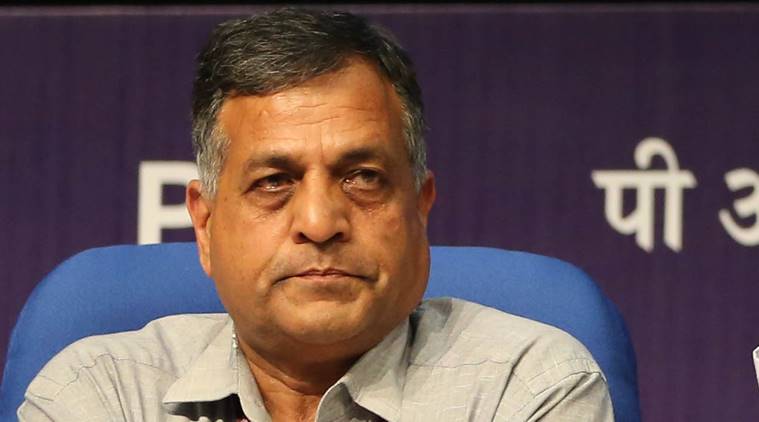 Ashok Lavasa, one of the three commissioners in the Election Commission, had on five occasions opposed the clean chit given by the Commission to Prime Minister Narendra Modi. (file photo)
Ashok Lavasa, one of the three commissioners in the Election Commission, had on five occasions opposed the clean chit given by the Commission to Prime Minister Narendra Modi. (file photo)
The Central Information Commission has upheld the Election Commission’s(EC) refusal to disclose Election Commissioner Ashok Lavasa’s objection to the clean chit given to Prime Minister Narendra Modi and former BJP president Amit Shah on charges of violating the Model Code of Conduct during the 2019 Lok Sabha election campaign.
Lavasa, who had differed with the majority view in five different complaints of MCC violation against Modi and Shah, had insisted that his view be incorporated in the final order.
The full Election Commission, comprising Chief Election Commissioner Sunil Arora and members Lavasa and Sushil Chandra, however, decided that minority views would remain part of the records, but not its order.
The CIC ruling, dated April 10, was given in response to the second appeal filed by Jasdeepak Singh against EC, invoking Section 8(1) (g) of the RTI Act to deny his request for “the certified copy of the dissent” expressed by Lavasa.
Section 8(1)(g) exempts disclosure of information which can potentially endanger the life or physical safety of a person or identify the source of information or assistance given in confidence for law enforcement or security purposes.
The poll panel, in its defence before the CIC, said that the information sought by the applicant contains references to inputs received from EC’s field officers. “Any disclosure of aforesaid poses a certain risk to the safety of such officers. Secondly, the information sought for by the Appellant and the inputs relied therein is in aid of law enforcement which is confidential in nature,” the poll panel is quoted as saying in CIC’s order.
“In any event, there is no prejudice caused neither to the Appellant nor to the public at large since all final decisions taken by the ECI based on inputs received are published in the public domain,” the EC had further argued before Chief Election Commissioner Bimal Jhulka.
Interestingly, the EC’s lawyer also referred to a Supreme Court order of 2011, permitting a student to inspect his CBSE Board examination answer script. In this order, the apex court had asked the Board not to provide information on the paper examiner as it could endanger his or her physical safety.
The CIC decided that no further intervention is needed on its part in the matter and that EC’s decision will prevail.